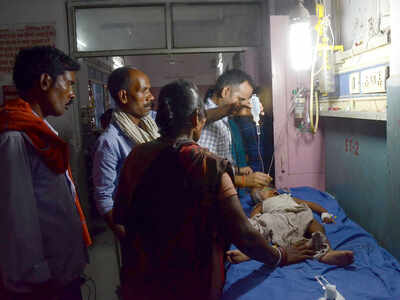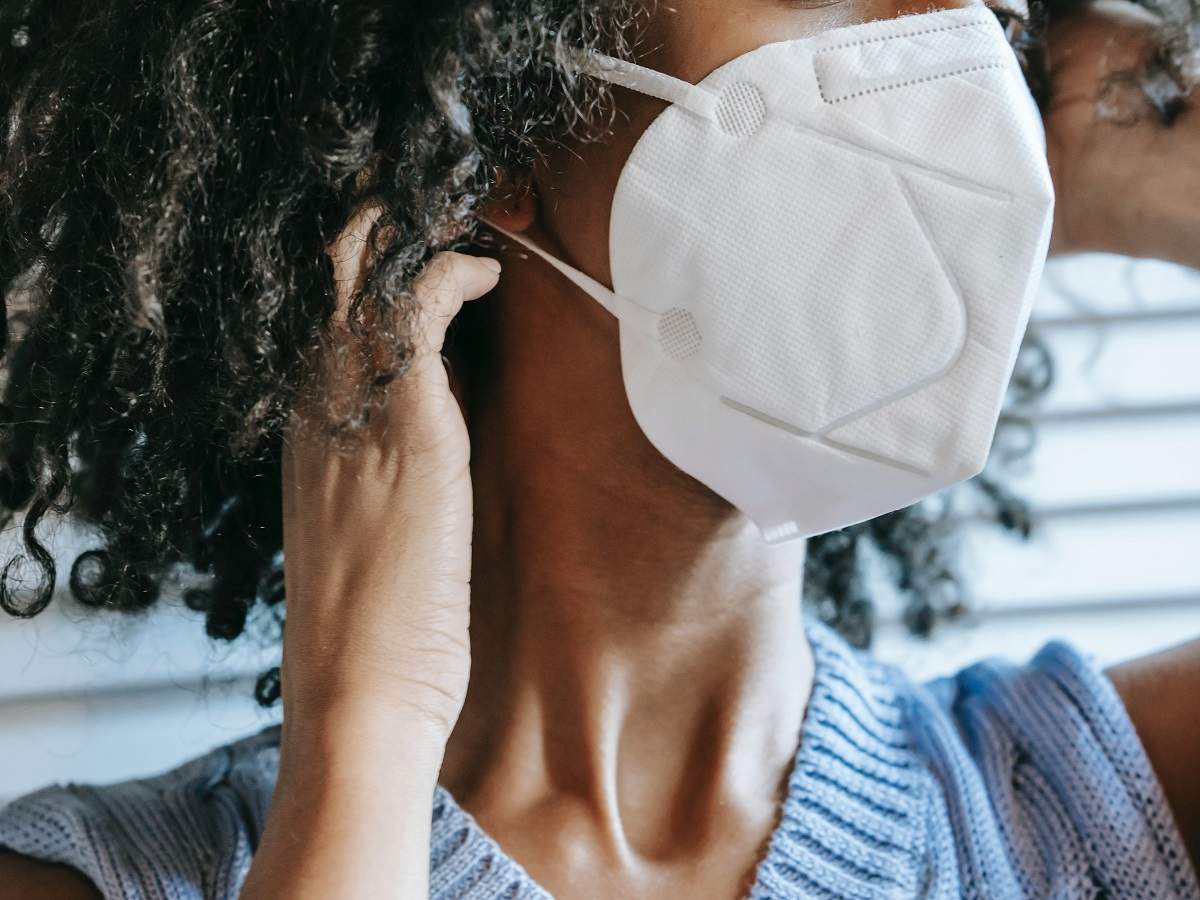
PATNA: National Institute of Mental Health and Neurosciences (NIMHANS), Bangalore, will provide technical support to state health department for enhancing surveillance for acute encephalitis syndrome (AES), which had killed over 150 children in the state last year.
NIMHANS will also strengthen the capacity of existing laboratories in the state and develop a tiered network of labs.
A memorandum of understanding (MoU) in this regard was signed between state health department and NIMHANS here on Saturday. The non-financial MoU will be effective till September this year.
As part of the MoU, NIMHANS team will provide support in strengthening district laboratories or level-1 lab where basic test can be done and two virology labs, one at Patna Medical College and Hospital and another at Darbhanga Medical College and Hospital (DMCH), will be developed as level-2 labs.
For high level test, samples will be sent to NIMHANS lab in Bangalore. Before enhancing these labs, NIMHANS and Care India will conduct a gap assessment and then suggest measures for strengthening surveillance capabilities. This gap assistance will be done in 15 days.
State health department principal secretary Sanjay Kumar after said signing the MoU that it was important to understand the reason behind AES, for which research was required and NIMHANS will be training health experts on the ways of documentation. Sanjay said many experts had earlier given various theories on AES, but its aetiology is still unknown.
NIMHANS neuro-virology head Dr V Ravi said doctors would be imparted training in March and pharmacists and lab technicians in April.
“NIMHANS has already done such surveillances in Uttar Pradesh, West Bengal and Assam. In UP, 30 to 40% of encephalitis cases were because of scrub typhus germs. Dengue was found to be another factor. In fact, causes have been found for 50% encephalitis cases in UP,” he said.
‘100-bed PIU at Muzaffarpur hospital by April’: State health department principal secretary Sanjay Kumar on Saturday said the 100-bed paediatric intensive care unit (PICU) at Sri Krishna Medical College and Hospital in Muzaffarpur would be ready by the last week of April this year.
He also said a dhramshala was being made at SKMCH to provide accommodation to the parents of sick kids. “A batch of 36 doctors and nurses has been sent to Delhi for training on AES,” Sanjay said.
NIMHANS will also strengthen the capacity of existing laboratories in the state and develop a tiered network of labs.
A memorandum of understanding (MoU) in this regard was signed between state health department and NIMHANS here on Saturday. The non-financial MoU will be effective till September this year.
As part of the MoU, NIMHANS team will provide support in strengthening district laboratories or level-1 lab where basic test can be done and two virology labs, one at Patna Medical College and Hospital and another at Darbhanga Medical College and Hospital (DMCH), will be developed as level-2 labs.
For high level test, samples will be sent to NIMHANS lab in Bangalore. Before enhancing these labs, NIMHANS and Care India will conduct a gap assessment and then suggest measures for strengthening surveillance capabilities. This gap assistance will be done in 15 days.
State health department principal secretary Sanjay Kumar after said signing the MoU that it was important to understand the reason behind AES, for which research was required and NIMHANS will be training health experts on the ways of documentation. Sanjay said many experts had earlier given various theories on AES, but its aetiology is still unknown.
NIMHANS neuro-virology head Dr V Ravi said doctors would be imparted training in March and pharmacists and lab technicians in April.
“NIMHANS has already done such surveillances in Uttar Pradesh, West Bengal and Assam. In UP, 30 to 40% of encephalitis cases were because of scrub typhus germs. Dengue was found to be another factor. In fact, causes have been found for 50% encephalitis cases in UP,” he said.
‘100-bed PIU at Muzaffarpur hospital by April’: State health department principal secretary Sanjay Kumar on Saturday said the 100-bed paediatric intensive care unit (PICU) at Sri Krishna Medical College and Hospital in Muzaffarpur would be ready by the last week of April this year.
He also said a dhramshala was being made at SKMCH to provide accommodation to the parents of sick kids. “A batch of 36 doctors and nurses has been sent to Delhi for training on AES,” Sanjay said.
Trending Topics
LATEST VIDEOS
City
 On cam: RPF cop saves woman passenger at Bhubaneswar railway station
On cam: RPF cop saves woman passenger at Bhubaneswar railway station  Watch: Akhilesh Yadav scolds cop after man chants 'Jai Shri Ram' during public gathering in Kannauj
Watch: Akhilesh Yadav scolds cop after man chants 'Jai Shri Ram' during public gathering in Kannauj  Pune: Narrow escape for passengers, as jeep on runway forces Air India flight to lift-off early
Pune: Narrow escape for passengers, as jeep on runway forces Air India flight to lift-off early  Shocking! Bhuj college forces girl students to strip to check if they were menstruating
Shocking! Bhuj college forces girl students to strip to check if they were menstruating
More from TOI
Navbharat Times
Featured Today in Travel
Get the app





